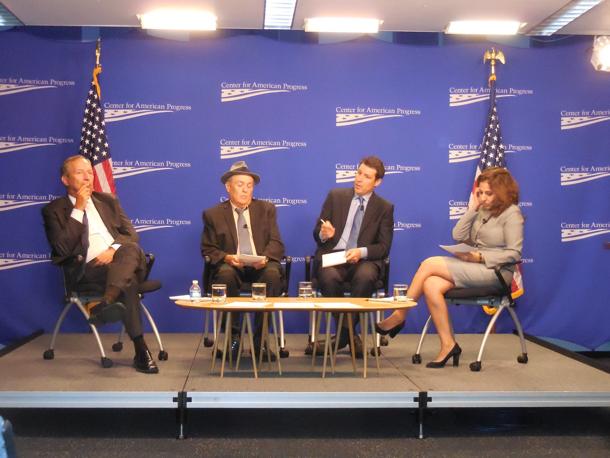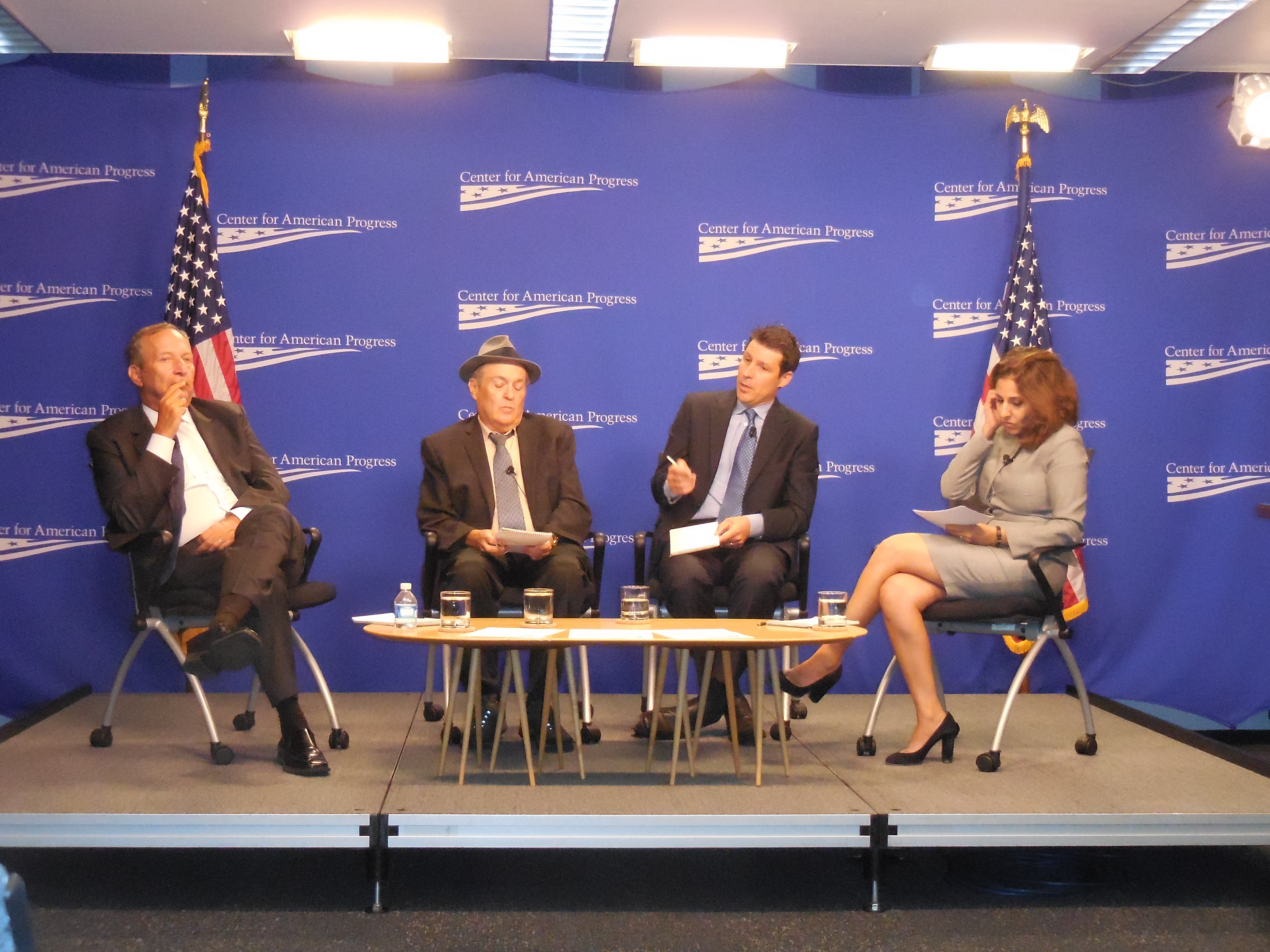
When it comes to reaching for the American Dream, those who live in states and communities where unions are strong are more likely to have a chance to move up the economic ladder than those who don’t, according to new research released this week by the Center for American Progress (CAP).
We’ve known that the growing gap between the wealthiest 1 percent and the rest of us holds back the economic recovery from the Great Recession. But this report puts a finger on some of the key reasons why people have had a hard time climbing the economic ladder, and the decline of unions is among the most important.
The report notes that the nation today “has less [economic] mobility and fewer opportunities when compared to other advanced economies. A U.S. child born in the bottom 20 percent of the income distribution, for example, has a 7.5 percent probability of reaching the top 20 percent as an adult, compared to 11.7 percent in Denmark and 13.4 percent in Canada.”
Looking at the data, the economists who wrote the CAP report show that “low-income children rise higher in the income rankings when they grow up in areas with high-union membership.” In fact, according to the report, “a 10 percentage point increase in union density is associated with a 4.5 percent increase in the income of an area’s children.”
This should not be surprising, as collective bargaining is the foundation for building a strong middle class. This new report looks at some of the reasons why and concludes that, especially among families headed by low-skilled workers, union membership makes a significant difference in the ability of their children to rise out of poverty.
Part of the reason, the report suggests, is that union members “make more money than comparable nonunion workers – what economists call the union premium—and when parents make more money, their children tend to make more money.”
In addition, the report says, “union jobs may be more stable and predictable, which could produce a more stable living environment for children, and union jobs are more likely to provide family health insurance.”
Even for nonunion workers, living in communities or states with strong unions is a benefit: “It has been shown that unions push up wages for nonunion workers, for example, and these wage gains for nonunion members could pass on to their children,” the report said.
The report was written by Harvard University economist Richard B. Freeman; Eunice Han, professor of economics at Wellesley College; David Madland, managing director for economic policy, CAP, and Brendan V. Duke, a policy analyst for CAP’s Middle-Out Economics project.
